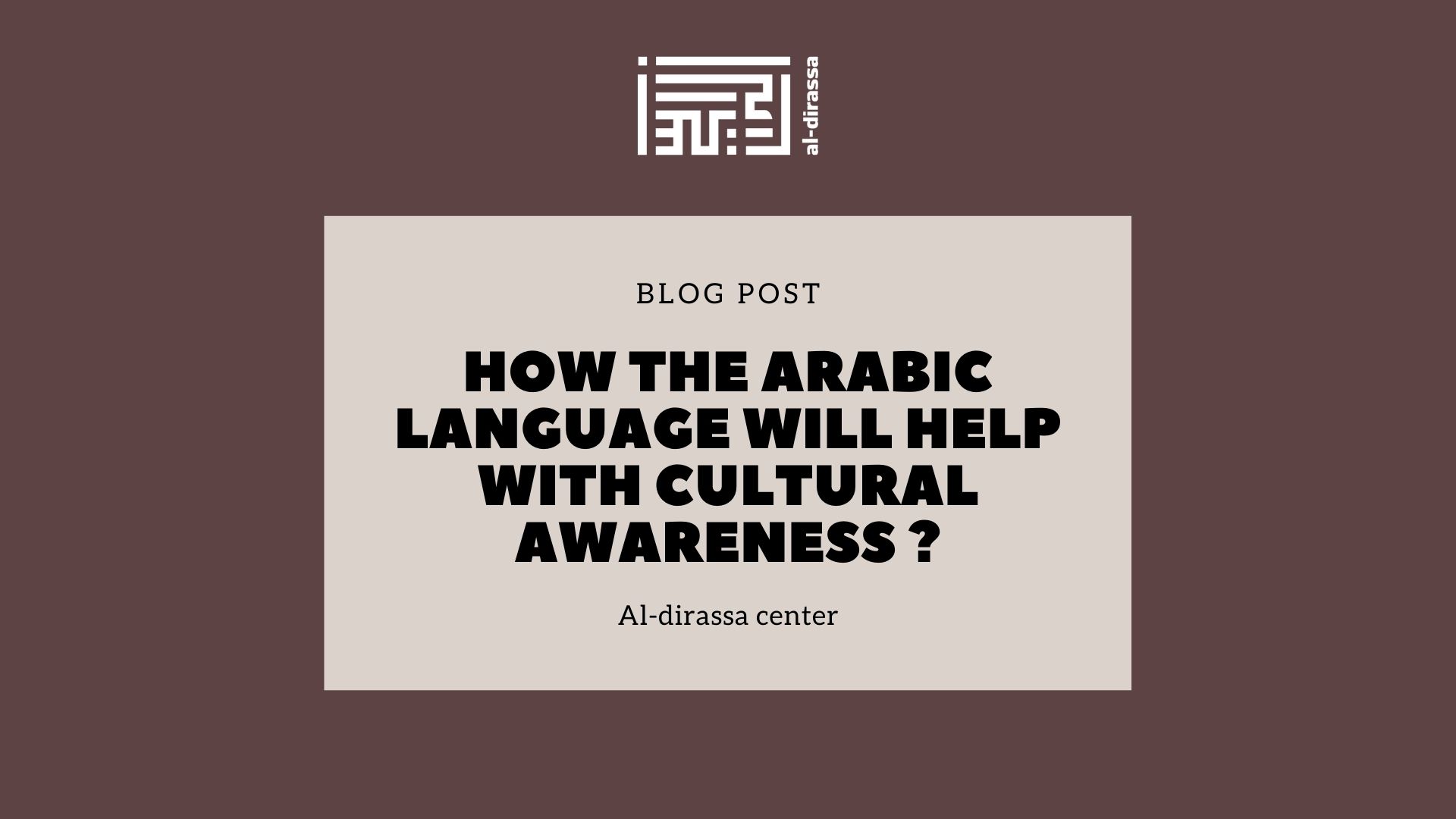Learn Arabic Online: Mastering the Language of the Quran
Learn Arabic Online: The Ultimate Guide to Mastering the Language of the Quran

Learning Arabic is a unique linguistic journey that opens the doors to a rich cultural, spiritual, and intellectual tradition. As the language of the Quran, spoken by over 400 million people worldwide, Arabic is also a valuable asset for broadening personal and professional horizons.
With Al Dirassa Institute, learning Arabic online has never been easier, whether you’re a curious beginner or an advanced learner seeking to perfect your skills. This article unveils the secrets to learning Arabic effectively and achieving success in your language journey.
Why Learn Arabic Online?
1. A Global and Influential Language
Arabic is the fourth most spoken language in the world, playing a central role in the Middle East and North Africa. It is also one of the official languages of the United Nations.
2. Access to an Invaluable Cultural Heritage
Mastering Arabic enables you to read and appreciate literary, philosophical, and scientific works in their original language. Imagine discovering the poems of Mahmoud Darwish or the works of Avicenna in their authentic form.
3. Strengthening Your Spirituality
For Muslims, Arabic is the language of the Quran and Hadith. Understanding these sacred texts directly in their original language enhances spiritual connection and improves religious practice.
4. A Career-Boosting Asset
Arabic proficiency is increasingly sought after by international companies. Whether in commerce, translation, diplomacy, or education, Arabic sets you apart in the job market.
Book your free trial lesson
Don’t want to go through the translation anymore?
30 free minutes with your qualified Egyptian teacher.
The Importance of Arabic for Muslims
Arabic occupies a central place in the life of a Muslim. As the language of the Quran and divine revelation, it is much more than a means of communication.
1. Understanding the Words of Allah
The Quran, revealed in Arabic, is the ultimate guide for Muslims. Learning Arabic allows you to grasp the profound meanings of its verses and appreciate their divine eloquence. Translations, while helpful, can never fully convey the linguistic and spiritual richness of the original text.
Example: The verse “اقرأ باسم ربك الذي خلق” (Read in the name of your Lord who created) illustrates the importance of reading and knowledge in Islam. This verse gains deeper meaning when read in Arabic.
2. Deepening Religious Practice
Many invocations (duas) and acts of worship, such as prayer, are in Arabic. By learning this language, Muslims can recite and understand their prayers with greater focus and devotion.
3. Preserving the Unity of the Muslim Community
Arabic is a unifying language for Muslims worldwide, regardless of their origins. It is the key to understanding prophetic teachings and the works of Islamic scholars.
4. Passing on Tradition to Future Generations
By learning Arabic, parents can pass on an essential part of their Islamic identity to their children, fostering a strong connection with their faith.
The Benefits of Learning Arabic Online
Today, technology provides access to high-quality courses from the comfort of your home. Here’s why learning Arabic online is an ideal solution:
1. Flexibility and Accessibility
Online courses allow you to learn at your own pace, wherever you are. Whether you’re a student, a professional, or a busy parent, online learning fits your schedule.
2. Interaction with Qualified Teachers
Platforms like Al Dirassa Institute offer access to native, highly qualified teachers specializing in teaching Arabic to non-native speakers.
3. Varied Educational Resources
Online, you have access to interactive materials, videos, exercises, and quizzes to enrich your learning experience.
4. Courses for All Levels
Whether you’re a beginner or an advanced learner, online courses are designed to meet your specific goals, whether to understand the Quran, learn grammar, or master a dialect.
Steps to Master Arabic
1. Learn the Arabic Alphabet
The first step is to familiarize yourself with its 28 letters. At Al Dirassa Institute, interactive teaching materials guide you to read and write from the first lessons.
2. Start with Basic Phrases
Begin with simple phrases, such as greetings, introductions, or everyday questions.
Example:
- Hello: السلام عليكم (
Assalamu alaykum) - How are you? : كيف حالك؟ (
Kayfa haluka?)
3. Build a Thematic Vocabulary
Expand your vocabulary by learning words by theme, such as colors, numbers, professions, or places.
Tip: Use flashcards and review them regularly to enhance memory retention.
4. Study Grammar Gradually
Arabic grammar may seem daunting, but it becomes clear with a gradual approach. For instance, learn the roles of declensions (i’rab) to identify subjects, objects, and complements in a sentence.
5. Practice Speaking Regularly
Speaking practice is essential to improve fluency. Join interactive classes with native speakers or exchange with other learners in conversation workshops.
6. Read and Listen to Diverse Materials
Read books, listen to podcasts, or watch educational videos in Arabic. This exposes you to authentic vocabulary and enhances your listening comprehension.
Practical Tips for Success
1. Set Clear Goals
Do you want to read the Quran, travel to an Arab country, or boost your professional prospects? Identify your goals to tailor your learning.
2. Establish a Routine
Dedicate daily time to learning. For example, 20–30 minutes a day is sufficient for consistent progress.
3. Practice Writing
Mastering Arabic writing is essential for language comprehension. Practice forming letters and words through daily exercises.
4. Engage in Conversations
Even as a beginner, try speaking with native speakers or other learners. It builds confidence and improves comprehension.
Why Choose Al Dirassa Institute?
Proven Teaching Methodology
Al Dirassa Institute offers interactive online courses tailored to your needs, whether you aim to learn Modern Standard Arabic, deepen your religious knowledge, or master a specific dialect.
Experienced Instructors
Our native teachers are not only qualified but also passionate about teaching. They use modern techniques to make every lesson engaging and productive.
Advanced Tools
Through our online platform, you benefit from interactive resources, practical exercises, and personalized support to maximize your progress.
Conclusion
Learning Arabic is a rewarding experience that transforms not only your language skills but also your cultural and spiritual perspective. With Al Dirassa Institute, you can learn Arabic online easily, at your own pace, with qualified teachers guiding you at every step of your journey.
Whether you aim to deepen your understanding of the Quran, travel to an Arab country, or simply discover a new language, our courses are designed to meet your needs. Enroll today and embark on a journey to master Arabic with us!
To know more: Arabic Language online Courses
Chosen and Trusted by Thousands of Satisfied Learners
Discover the experiences of our delighted clients who have thoroughly enjoyed utilizing this standout feature.
Alhamdulillah I‘m very pleased with the arabic and Qur’an lessons I receive from teacher Umm Tasneem and I‘m also content with the al-dirassa administration team who were very quick in answering any questions I had. In a month I progressed a lot and I cannot wait to continue my studies with al-dirassa. May Allah reward everyone at al-dirassa.
Verified review - view original
My Qur’an teacher is fantastic, she teaches me in a loving and kind way where I look forward to the lessons and learn so much. My Arabic teacher is equally as nice and has a lot of patience with me, she has great expertise in the field and I’ve progressed really quickly with her. Thank you Al-dirassa!
Verified review - view original







